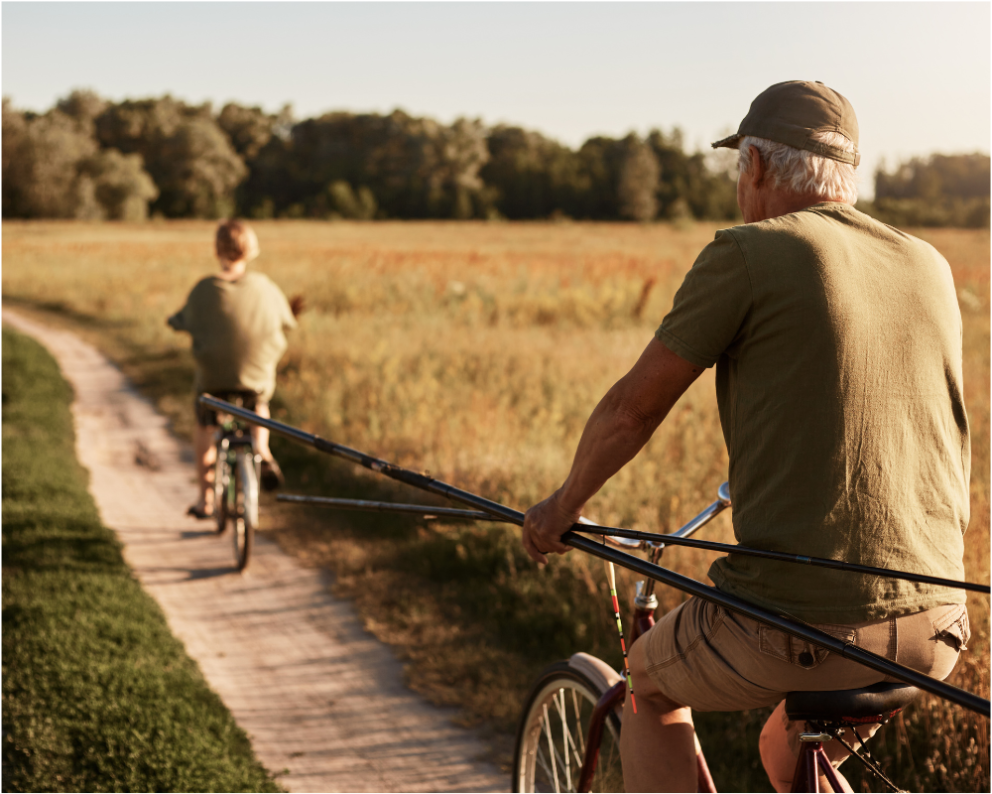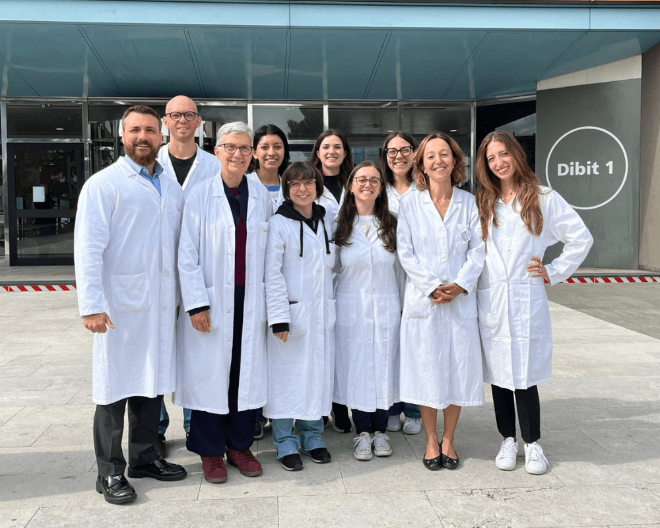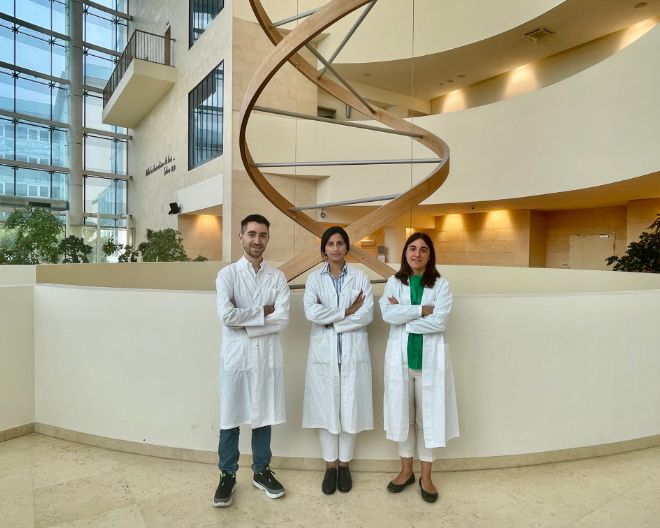
From Vita-Salute San Raffaele University in Milan, a revolution in the rehabilitation techniques of the elderly in nursing homes
Professor Claudio de’Sperati, associate of Psychobiology and Physiological Psychology at the Faculty of Psychology of the Vita-Salute San Raffaele University in Milan, presented the "Telecyclette" project, an innovative solution that aims to introduce a new model of rehabilitation for the elderly hospitalized in nursing homes, at the "XR4REHAB Annual Conference 2023" on June 29 in Amsterdam.
The Telecyclette Project
With increasing longevity and life expectancy, the elderly population, especially in Europe and North America, is steadily increasing, and between 2020 and 2050, the over-80s are expected to triple, surpassing the 400 million mark. The elderly, especially when living in assisted living facilities, face three main problems: physical isolation, decline in motor activity, and affective impoverishment, which have a strong negative impact on the management of physical comorbidities and overall quality of life.
/resolutions/res-l1920x10000/Telecyclette_combattere_isolamento_anziani_UniSR-(6).jpg)
To address this condition, the Telecyclette project was born, which takes its cue from indoor cycling systems with virtual reality, already commercially available for enthusiasts, but differs from them in that the telecommunication system brings into dialogue an indoor exercise bike, placed, for example, in the gym of a nursing home, and a real bicycle.
Wearing an immersive virtual reality viewer, mounted on a helmet, the elderly person is projected onto a real bicycle, on which, at that moment, a real person is pedaling. A video camera is mounted on the bicycle, with a 360-degree overview, connected in real time to the virtual reality system via a 5G mobile network. In addition to the camera, a microphone and a small loudspeaker are also mounted on the bicycle, so that both conversation and listening to noises from outside are possible.
/resolutions/res-l1920x10000/Telecyclette_combattere_isolamento_anziani_UniSR-(4).jpg)
The Telecyclette therefore allows the elderly to feel on a real bicycle (telepresence), to be precise on a tandem with which to "escape" from the nursing home by pedaling and at the same time conversing with the pedaling person. In a further and subsequent development, the elderly will also be able to actively control, in real time, the speed and direction of the bicycle, thanks to a mechatronic remote control system, for which a patent application has already been filed, for which UniSR and Fondazione Cariplo are co-owners - by virtue of the funding with which the latter supported the project start-up - and 50% of any initial proceeds will be invested in research activities in this area, according to the ethical management of the patent for social purposes.
In addition to implementing a telecommunication system based on a bidirectional real-time data transmission protocol, the project is also an example of the practical application of a perceptive enhancement mechanism studied in the laboratory, called "augmented gaze", which, by exploiting the adaptive capabilities of sensor-motor systems, allows the effects of the wearer's head rotation to be amplified, making it easier to explore the surrounding environment and facilitating direct visual contact between the elderly and the bicycle rider.
/resolutions/res-l1920x10000/Telecyclette_combattere_isolamento_anziani_UniSR-(5).jpg)
Telecyclette's team and collaborators
The project, funded by the Velux Stiftung Foundation of Zurich, has a duration of four years (3 years of testing and 1 year between the initial preparation phase and the final data collection and processing phase). The experimentation is led by the Laboratory of Action, Perception and Cognition (Lapco) of the UniSR Faculty of Psychology directed by Professor Claudio de'Sperati, and is conducted by a multidisciplinary team involving other teachers of the Faculty of Psychology, such as Dr. Gabriel Baud -Bovy, researcher at Lapco, Professor Giuseppe Pantaleo, full professor of Social Psychology and director of UniSR-Social.Lab (the UniSR research laboratory in Social Psychology), and Dr. Simona Sciara, researcher at the Faculty of Psychology at UniSR- Social.Lab. The project is carried out in cooperation with the Multisensory Experience Lab of Aalborg University (Denmark), which, thanks to the support of Dr. Emil Høeg, co-director of the Telecyclette project, and Professor Stefania Serafin, co-director of the Multisensory Experience Lab, will develop the immersive software and study the virtual interaction during the Telecyclette experience. The team coordinated by Professor Sergio Mascetti, of the "Giovanni Degli Antoni" Department of Computer Science of the University of Milan will also take care of the development, in particular by developing the technology that allows data to be acquired from the real bicycle and transmitted to the virtual reality viewer worn by the elderly.
/resolutions/res-l1920x10000/Telecyclette_combattere_isolamento_anziani_UniSR-(1).jpg)
The project benefits from the crucial collaboration of two nursing homes, the San Giuseppe in Milan (Monte Tabor Association) and the Residenza il Trifoglio in Turin (Cooperativa Sociale Bios), where the testing activities with the elderly will be conducted, starting in the fall. An important contribution comes from the Kallipolis association, a non-profit reality in Trieste that deals with urban regeneration, which will be in charge of organizing the bicycle accompaniment service.
"The rapid aging of the world's population is a phenomenon that needs to be addressed on a large scale effectively and on time. Residential facilities for the elderly might be a good answer, but in practice it almost always results in isolation. Anyone with an elderly relative who is no longer self-sufficient knows how much the transfer to an assisted living facility is a painful decision which involves a painful separation for the elderly person in physical, psychological and social terms. Often, this is compounded by the guilt of the family, which feels responsible for the decision. Coping with these issues is not an easy task.
/resolutions/res-l1920x10000/Telecyclette_combattere_isolamento_anziani_UniSR-(2).jpg)
"However, we can imagine a future in which grandchildren will call their grandparents in the nursing homes on the phone, proposing that they take a Telecyclette ride together, or in which it will be possible for an elderly person, somewhat like one does with a cab, to book a Telecyclette ride with a volunteer who gives some of their time or by relying on a network of remote cycling companions, a possible new profession that this project foreshadows. It is precisely making virtually possible something considered impossible for elderly people living in residential care homes, i.e. cycling in the open air with company, that makes us say that this project can represent a real revolution in the rehabilitation of the elderly and, therefore, improving their quality of life... but basically also a little improving a bit everyone's life if we project ourselves into that future situation: perhaps we will be able to continue going by bicycle",
said Professor Claudio de'Sperati.
You might be interested in

The EMA approves lecanemab

Juvenile Parkinson's disease: at San Raffaele created a new model to study its development

Researchers Franco, Ferrari and Omer awarded three ERC Starting Grants

